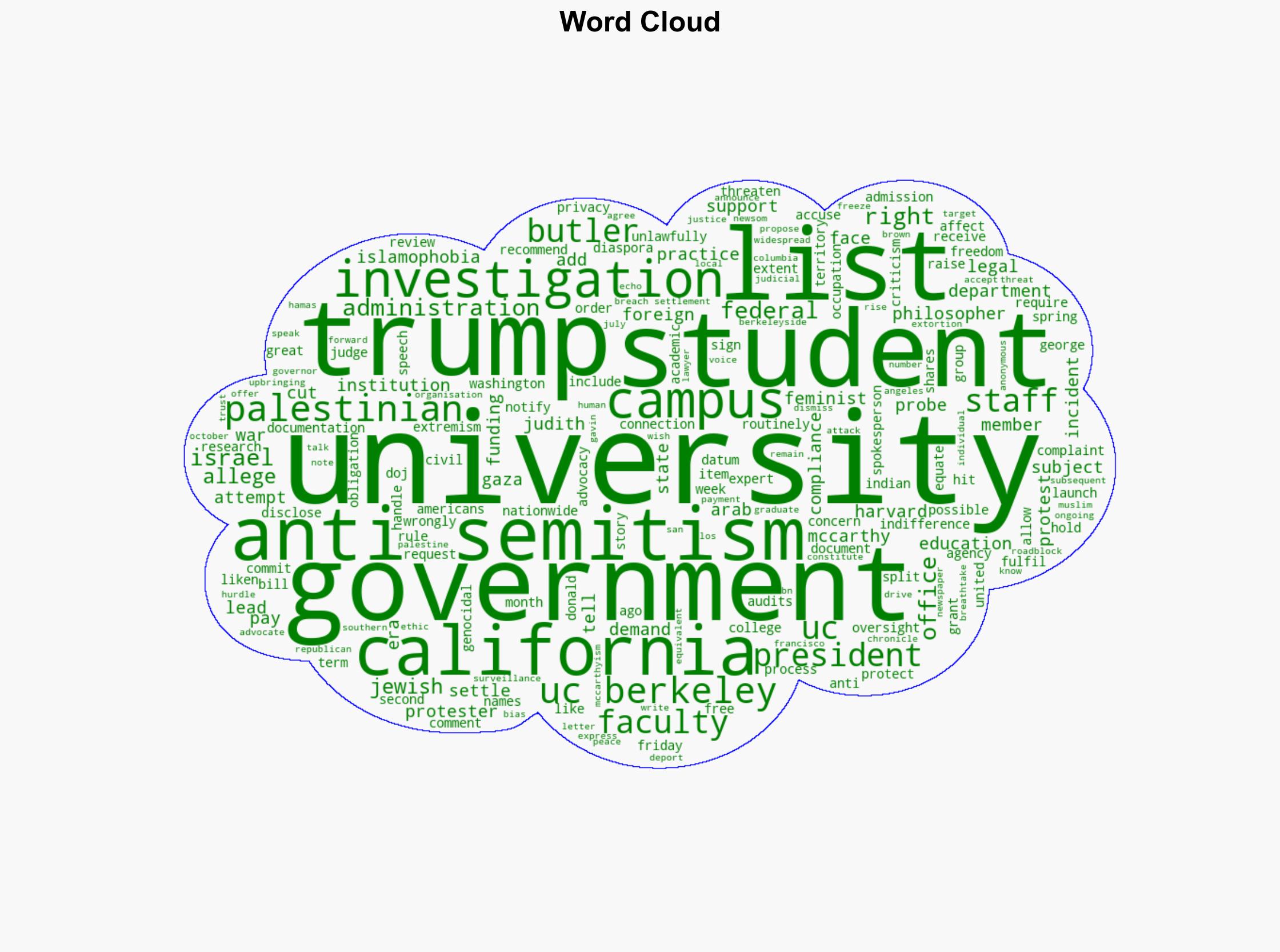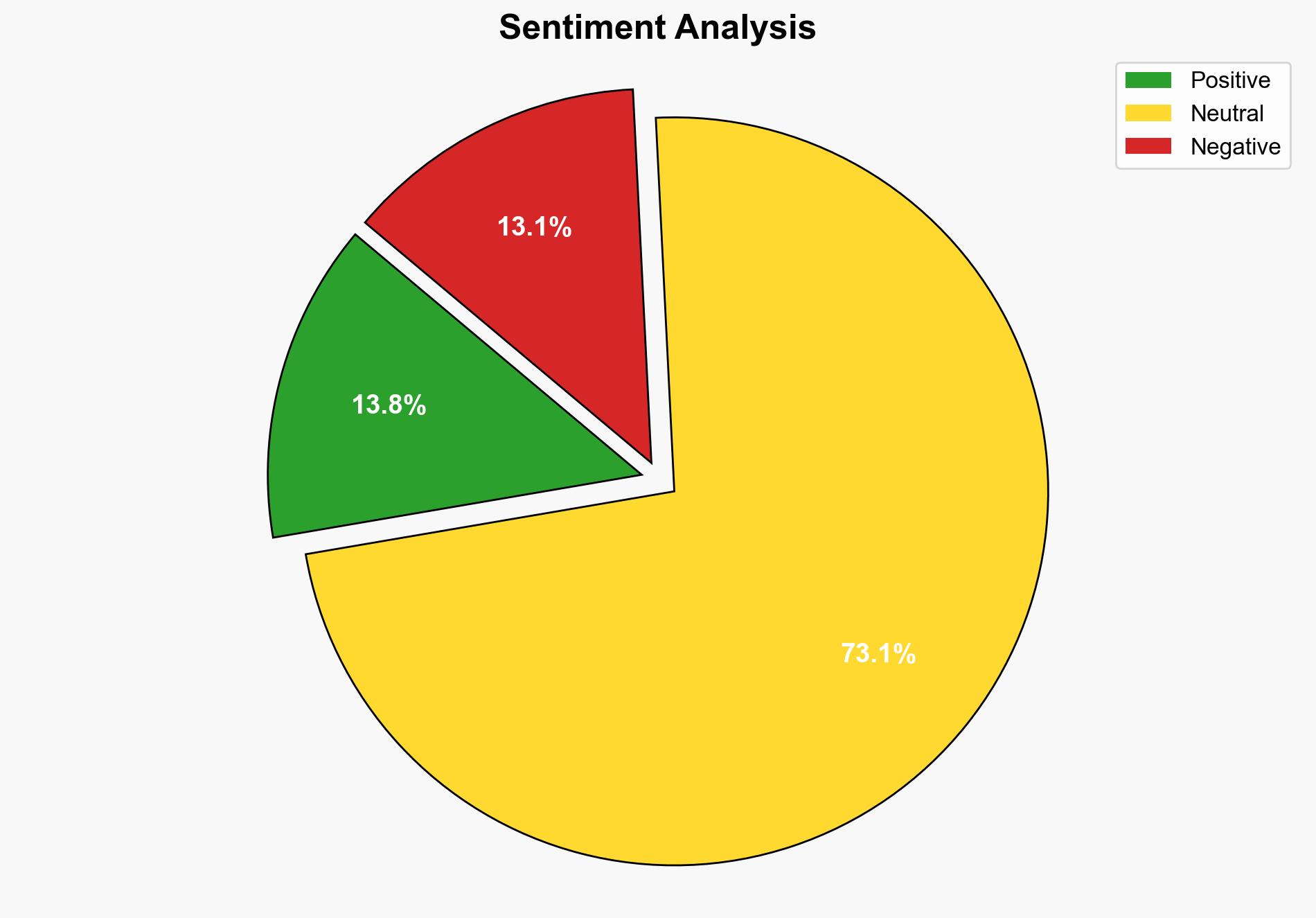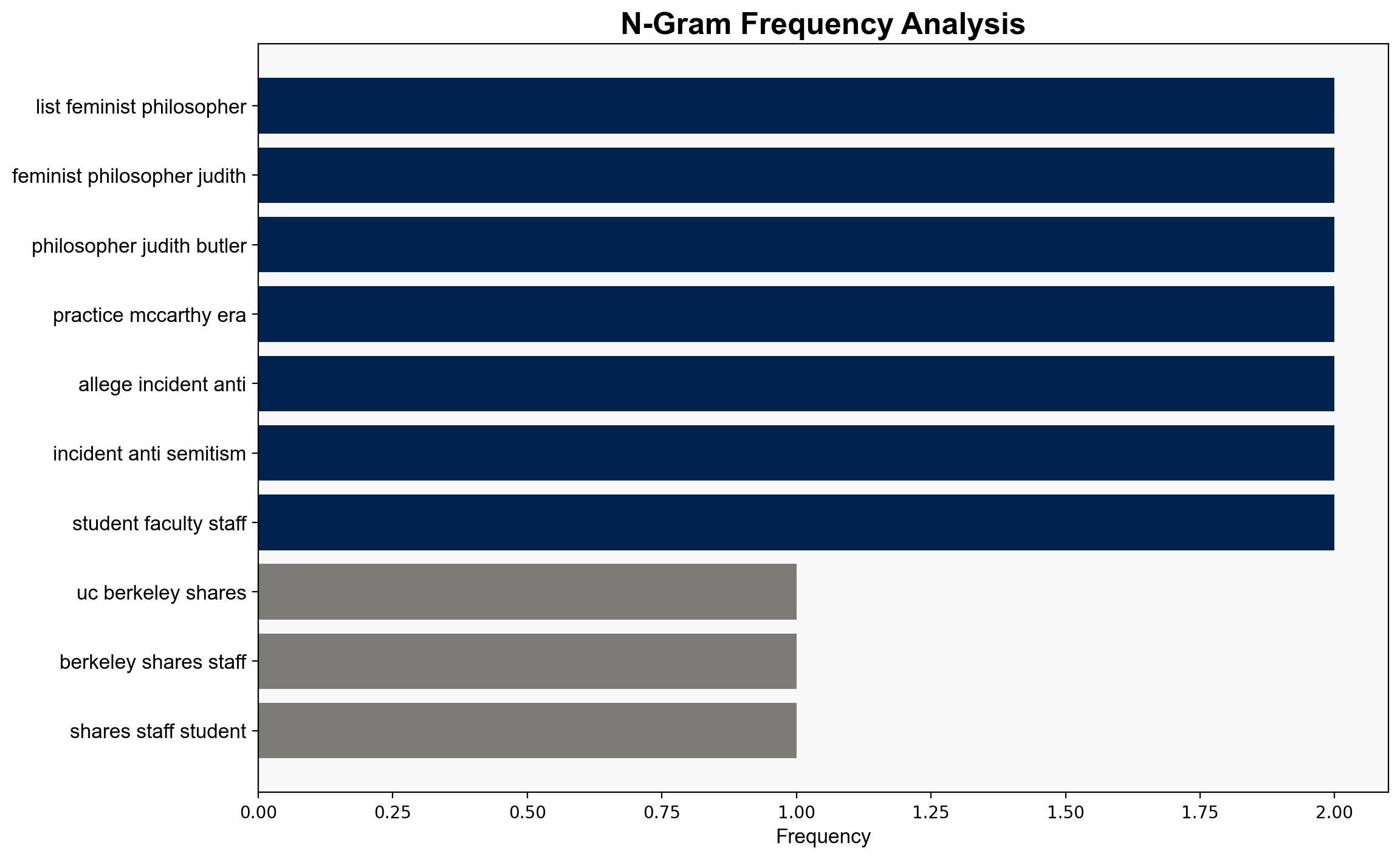UC Berkeley shares information on 160 staff students with US government – Al Jazeera English
Published on: 2025-09-13
Intelligence Report: UC Berkeley shares information on 160 staff students with US government – Al Jazeera English
1. BLUF (Bottom Line Up Front)
The most supported hypothesis is that UC Berkeley’s compliance with federal requests for information is primarily driven by legal obligations and potential repercussions of non-compliance, rather than ideological alignment with federal policies. Confidence level: Moderate. Recommended action: UC Berkeley should enhance transparency and communication with affected parties to mitigate trust erosion and potential backlash.
2. Competing Hypotheses
Hypothesis 1: UC Berkeley shared information with the US government due to legal obligations and the need to comply with federal investigations, particularly those related to allegations of anti-Semitism on campus.
Hypothesis 2: UC Berkeley’s actions are influenced by political pressure from the Trump administration, potentially aligning with broader federal efforts to monitor and control campus activities perceived as anti-Semitic or anti-Israel.
Using Analysis of Competing Hypotheses (ACH 2.0), Hypothesis 1 is better supported due to the institution’s stated commitment to fulfilling legal obligations and protecting privacy, despite the controversial nature of the investigation. Hypothesis 2 is less supported as there is insufficient evidence of political alignment or coercion beyond standard compliance.
3. Key Assumptions and Red Flags
Assumptions for Hypothesis 1 include the belief that UC Berkeley prioritizes legal compliance over political considerations. For Hypothesis 2, it assumes significant political influence on university decisions. Red flags include potential bias in interpreting anti-Semitism and the absence of detailed legal frameworks guiding such disclosures. The lack of transparency in how individuals were selected for disclosure is also concerning.
4. Implications and Strategic Risks
The situation could exacerbate tensions between academic institutions and federal authorities, potentially leading to increased scrutiny and surveillance on campuses nationwide. This may also fuel domestic and international debates on free speech and academic freedom. The risk of reputational damage to UC Berkeley and similar institutions is significant, potentially affecting student and faculty recruitment.
5. Recommendations and Outlook
- UC Berkeley should engage in proactive dialogue with stakeholders to clarify the rationale behind information sharing and address privacy concerns.
- Develop clear guidelines and communication strategies for future government requests to prevent misunderstandings and build trust.
- Scenario-based projections:
- Best Case: Improved transparency leads to enhanced trust and reduced tensions between the university and federal authorities.
- Worst Case: Continued distrust results in increased protests and legal challenges, affecting the university’s operations and reputation.
- Most Likely: Ongoing negotiations and adjustments in compliance practices stabilize the situation without major escalation.
6. Key Individuals and Entities
Judith Butler, Donald Trump, Gavin Newsom
7. Thematic Tags
national security threats, cybersecurity, counter-terrorism, regional focus




